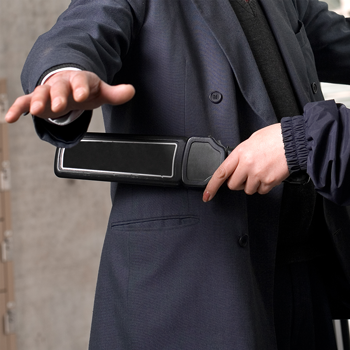Did you watch the Oscars Sunday?
It was “crazy,” and certainly one that all 32.9 million viewers won’t forget.
According to the latest NPR article by Linda Holmes entitled “A Shocking Ending Caps A Big Oscar Night For 'Moonlight” the night didn’t end the way it started, by a long shot.
Holmes writes, “For quite a while, Sunday night's Oscars seemed fairly tame. La La Land, the retro musical with Emma Stone and Ryan Gosling, came into the Oscars as a favorite, having tied the nomination record with a total of 14.
She continues that “by the time they prepared to announce best picture, La La Land had gone on a late run and nabbed six awards: for production design, cinematography, best original score, best original song ("City Of Stars"), best actress (Stone) and best director. Its path to best picture seemed clear.”
Or, did it?
Keep reading; because this is where the night gets interesting.
According to the NPR article, “Faye Dunaway and Warren Beatty took the stage to announce best picture and Beatty looked at the card and paused. And then he paused more. He handed it to Dunaway, and she read the card: "La La Land."
That’s odd, right?
Why would Warren Beatty pause to announce the winner? Why would he pass it to Dunaway?
What prevented him from completing his assigned responsibility?
Ponder the latter as we continue.
Holmes then writes that “The producers and cast of the heavily favored film took the stage, and several of them spoke. But then, with the throng still onstage, producer Jordan Horowitz — who had already given his heartfelt thanks — returned to the microphone and announced that there had been a mistake.”
A mistake? It’s the Oscars – a $40 million-plus production.
The Academy can’t make mistakes…can they? Well, as we all saw, they did.
“In fact, best picture had not been won by La La Land, but by Moonlight, a beautiful, moving and very inexpensive independent coming-of-age drama. Beatty, still onstage and trying to explain while surrounded by shocked producers and actors, blamed it on confusion with the card from the previous award: Emma Stone, in La La Land,” explains Holmes.
What occurred is an unfortunate event. But, there is a good lesson here for a property leader like yourself.
Do you know what it is?
Win & Keep Your Oscar Statuette
Warren Beatty’s reaction and decision to pass the responsibility to another person struck a chord with us.
It made us think about your operation.
Warren Beatty is smart. Your staff is smart. But, what happens when they don’t know what to do?
How will they handle themselves when they are confused or don’t know what to do? Will they brush something off because there are no consequences? How does their mistake negatively impact your brand?
The Oscars have been handing smart people envelopes to read out loud for a long time. We suspect that there may be a tweak to this process next year.
Mitigating this problem is imperative, and we can help you do that.
We want to help you to not only enhance the guest experience but also continue elevating your guests’ experience day after day.
Here’s what you need to focus on:
- Training
- Accountability
How do you achieve both of these to avoid an Oscar-like flub? Tabletop exercises.
Tabletop exercises give you the forum for practical training, help to create and reinforce accountability, and provide you with the information that you need to employ Proactive Operations throughout your property.
Tabletop Exercises Streamline Training, Safeguard Accountability & Much More
Now, it’s time to show how you can prevent your staff from doing what Warren Beatty did.
You’ll have confidence in their training and accountability, so even when an unusual situation occurs, they’ll know how to handle it professionally.
Tabletop exercises work for proactive operations and more than just enhancing training and accountability.
But, let’s be clear, we don’t recommend that you secure your staff to a round table. Our idea of training involves lots of role playing as well.
#1: Accountability
Running through scenarios with your team focuses them. Everyone learns the fundamentals for ensuring efficient service.
During this time, assess their abilities effectively, coach them, and coach them some more.
Then, you can hold them accountable. Holding them accountable is key because it sets expectations and ensures nothing slips through the cracks.
They won’t just ‘pass the card’ to the person next to them.
Give them the knowledge, and then hold them accountable.
#2: Staff Feels Valued
Taking time to train your staff shows them you care about everyone’s success. All that effort you’re putting into your operations must be shared with your team.
Tabletop exercises allow you to find the root of problems.
You can take a closer look at the details, whether it’s an issue in your strategy, infrastructure, technology, or personnel.
Recognize your team and their roles. Validate their importance and watch performance improve.
#3: Challenges Staff to Improve
Rather than dictating processes to your staff, let them figure out how to improve your operation.
While walking through various scenarios, they might find specific details in the process to improve – probably ones that you never considered.
They’re on the frontlines, which means they see everything first.
Tabletop exercises and role playing give you and your team the freedom to practice without consequence and test theories that could work.
It’s important to make your mistakes now, not when you’re LIVE and ‘on stage.’
#4: Builds Staff Confidence
Successful people are confident. So are successful teams. Develop your employees into experts. These exercises help to increase self-awareness.
Training allows them to enhance their understanding, with all the advantages of not being live like the Oscars.
Trying it out during an exercise creates that memory necessary to perform when it counts.
And, when you give them feedback, they know they’re performing to your standards. It’s a good feeling to be confident, right?
#5: Solutions to Complex Scenarios
A lot can go wrong or right when staff is responding to incidents, delivering on guest requests, reversing escalators, organizing lost and found possessions.
Agree?
There might be some steps in the process that you can improve or change completely.
You can improve your process to help your team become better aware of all incidents occurring throughout your property.
Acting out everyday occurrences and activities and how to respond can surface a collection of solutions.
- What do you do when the award card is incorrect?
- How do you handle a fight?
- What happens when adverse weather is approaching?
- How does your team need to handle a bomb threat?
It will strengthen your organization’s effectiveness, regardless of the impact or priority of the situation.
Prepare your team for anything – and everything.
#6: Enhanced Awareness
More solutions lead to heightened awareness of any and all scenarios that are occurring, or that could potentially occur on your property.
Train your employees to understand the impact of their role.
Develop an aware workforce.
It’ll result in faster response times and happier, safer guests. Do what’s necessary to have a proactive operation, eliminate the building, and create lasting memories.
#7: Skyrockets Productivity
Your training efforts will produce a high performing operation.
What do the members of a high performing team do? They get stuff done!
Stronger training through exercises not only enhances training in general or staff accountability but also ensures continuous improvement of Proactive Operations:
- Strategy
- Infrastructure
- Technology
These activities give your team the ability to be proactive, which elevates all areas of your operation.
#8: The Oscar Goes to…
And the Oscar goes to you!
Proving yourself as an Oscar-worthy leader includes:
- Preparing for the inevitable and unexpected
- Learning how to be ready for anything
- Achieving Proactive Operations that leads to memories
Do this, and keep your Oscar statuette where it belongs – in your hands.
Over to You
You don’t have a platform like the Oscar’s to worry about making a blunder. But, you do have a property with guests.
Those guests matter to you, right? That’s why you need your team to be well-trained and accountable for their actions.
So, are you ready to get and keep your ratings through the roof?




